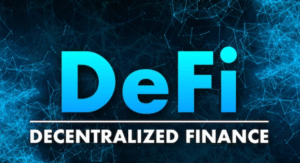#Bitcoin #ETFs #Cryptocurrency #Investing #FinancialMarkets #Ether #DigitalAssets #CryptoTrends
In the ever-evolving landscape of cryptocurrency investments, Exchange Traded Funds (ETFs) dedicated to digital currencies have become a significant bellwether for interest and sentiment within the market. This week, we’ve seen a stark divergence in the performance and attraction of funds tied to the two largest cryptocurrencies by market capitalization, Bitcoin and Ether. Notably, Spot Bitcoin ETFs have demonstrated resilience and growing investor confidence as evidenced by their ability to pull in substantial cash inflows.
On Wednesday, Spot Bitcoin ETFs reported a remarkable $39.42 million in net inflows. This figure is particularly striking, providing a clear indication that investors are increasingly looking towards Bitcoin as a viable investment vehicle. The allure of Bitcoin ETFs lies in their ability to offer investors exposure to Bitcoin without the complications of direct ownership, such as managing cryptographic keys and dealing with cryptocurrency exchanges. These funds track the price of Bitcoin, allowing for investment through traditional brokerage accounts, thus blending the innovative edge of cryptocurrency with the familiarity of conventional finance.
Contrastingly, Ether ETFs have not fared as well during the same period. The details of the net outflows from Ether ETFs were not provided, but their decline in attractiveness could be attributed to several factors, ranging from market sentiment to the evolving regulatory landscape or even the anticipation of upcoming upgrades to the Ethereum network. The differentiation in the performance between Bitcoin and Ether ETFs underscores the nuanced and varied investor perspectives on the future of these leading cryptocurrencies.
The divergence between Bitcoin and Ether ETFs reflects broader trends in the cryptocurrency market, where investor preference can shift rapidly in response to news, regulatory changes, and technological advancements. Bitcoin’s perceived status as ‘digital gold’ and its role as a hedge against inflation may contribute to its appeal in times of economic uncertainty. On the other hand, Ether’s utility in decentralized finance (DeFi) and non-fungible tokens (NFTs) markets means its fortunes are closely tied to those sectors’ dynamics. As the cryptocurrency market continues to mature, the performance of these ETFs offers valuable insights into investor behavior and market sentiment, serving as a barometer for the evolving landscape of digital asset investment.







Comments are closed.